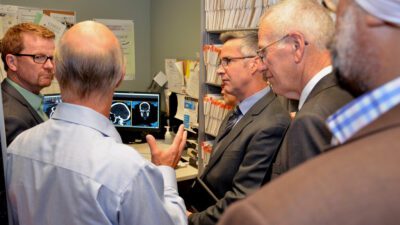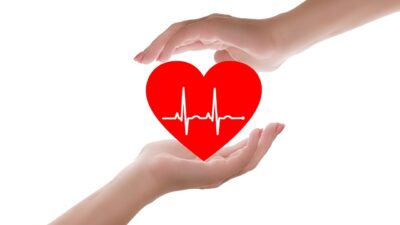Cancer and its treatment can take a toll on the body, making proper nutrition essential for recovery. A well-structured cancer patient diet plan can help manage symptoms, boost immunity, and improve overall well-being. In this guide, we’ll explore the best dietary choices for cancer patients and offer practical meal planning tips.
Importance of a Healthy Diet for Cancer Patients
A nutritious diet is crucial for cancer patients as it provides essential nutrients needed for healing and maintaining energy levels. Here are some key benefits:
- Supports immune function – Helps fight infections and aids in recovery.
- Maintains muscle mass – Prevents weight loss and enhances strength.
- Boosts energy levels – Provides sustained energy to combat fatigue.
- Reduces side effects – Helps alleviate nausea, constipation, and inflammation.
Essential Nutrients for Cancer Patients
Cancer patients need a balanced diet rich in proteins, healthy fats, vitamins, and minerals. Below are the most important nutrients:
1. Protein
Protein helps repair tissues and maintain muscle mass. Good sources include:
- Lean meats (chicken, turkey, fish)
- Eggs
- Dairy products (yogurt, cheese)
- Legumes and beans
- Nuts and seeds
2. Healthy Fats
Healthy fats provide energy and support cell function. Opt for:
- Avocados
- Olive oil
- Nuts and seeds
- Fatty fish (salmon, mackerel)
3. Carbohydrates
Carbohydrates are the body’s primary energy source. Choose complex carbs like:
- Whole grains (brown rice, quinoa, oats)
- Fruits and vegetables
- Legumes
4. Vitamins and Minerals
These nutrients support overall health and recovery. Key vitamins and minerals include:
- Vitamin C (citrus fruits, bell peppers)
- Vitamin D (fortified dairy, sunlight exposure)
- Iron (spinach, red meat, lentils)
- Zinc (pumpkin seeds, shellfish)
5. Hydration
Staying hydrated is essential to flush out toxins and support digestion. Cancer patients should drink:
- At least 8 glasses of water per day
- Herbal teas
- Fresh fruit juices (without added sugar)
Foods to Include in a Cancer Patient’s Diet
A cancer diet should include a variety of nutrient-dense foods. Some recommended options include:
- Leafy Greens – Spinach, kale, and Swiss chard are rich in antioxidants.
- Berries – Blueberries, strawberries, and raspberries provide vitamins and fiber.
- Lean Proteins – Chicken, fish, and plant-based proteins promote muscle strength.
- Nuts & Seeds – Almonds, walnuts, and flaxseeds offer healthy fats and fiber.
- Whole Grains – Quinoa, brown rice, and whole wheat bread for sustained energy.
- Dairy or Dairy Alternatives – Greek yogurt, almond milk, and cheese provide calcium and probiotics.
Foods to Avoid
Cancer patients should limit or avoid certain foods to prevent complications:
- Processed Foods – High in preservatives and unhealthy fats.
- Sugary Foods – Excess sugar can lead to inflammation.
- Fried Foods – Contain trans fats that are harmful to health.
- Alcohol – Can weaken the immune system and cause dehydration.
- Caffeinated Beverages – May contribute to dehydration and nausea.
Meal Plan for Cancer Patients
A well-balanced meal plan can make a significant difference in recovery. Below is a sample daily meal plan:
Breakfast
- Scrambled eggs with whole wheat toast
- A bowl of oatmeal with berries and nuts
- Fresh orange juice or herbal tea
Mid-Morning Snack
- Greek yogurt with honey and chia seeds
- A handful of almonds and walnuts
Lunch
- Grilled salmon with quinoa and steamed vegetables
- A side salad with olive oil dressing
- Green tea
Afternoon Snack
- A smoothie with banana, spinach, and almond milk
- Whole grain crackers with hummus
Dinner
- Grilled chicken with roasted sweet potatoes and broccoli
- A bowl of lentil soup
- Herbal tea
Before Bed Snack
- A handful of mixed nuts or a protein shake
- Cottage cheese with flaxseeds
Managing Common Cancer Treatment Side Effects with Diet
Cancer treatments like chemotherapy and radiation often cause side effects. Here’s how diet can help:
Nausea & Vomiting
- Eat small, frequent meals
- Choose bland foods like toast and crackers
- Drink ginger tea (Source: Cancer.net)
Loss of Appetite
- Consume high-calorie, nutrient-dense foods
- Drink smoothies and shakes for easy nutrition
Constipation
- Increase fiber intake with fruits, vegetables, and whole grains
- Drink plenty of water (Source: American Cancer Society)
Fatigue
- Eat balanced meals with proteins and healthy fats
- Stay hydrated and avoid sugary foods
Conclusion
A cancer patient diet plan plays a crucial role in recovery, strength, and overall well-being. Prioritizing nutrient-dense foods, staying hydrated, and managing side effects through diet can improve quality of life during treatment. Always consult a healthcare provider or nutritionist to tailor a diet plan specific to individual needs.
For more information on cancer nutrition, visit reputable sources like National Cancer Institute and World Cancer Research Fund.
By following a proper cancer patient diet plan, individuals can optimize their nutrition, boost their immune system, and enhance their recovery journey.




